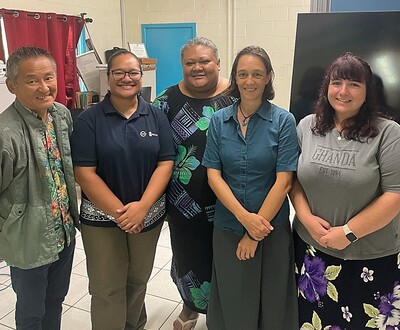This post was originally published on Sustainability Matters

In a world grappling with the escalating impacts of climate change, urgent action is essential to confront the environmental challenges threatening our planet’s future. Human activity has led to changes to Earth’s climate of a magnitude unprecedented over centuries and thousands of years. As the effects of climate change rapidly intensify, demand for specialists trained to address these pressing issues has never been greater.
At the University of Newcastle, the Master of Environmental Management and Sustainability aims to develop these specialists. The program offers a unique blend of environmental courses that focus on key principles of environmental management, sustainability, and climate change.
“The program has a very good reputation with alumni and current students, scoring highly on student satisfaction of teaching,” says program convenor Geoff MacFarlane.
“It is also accredited by the United Nations in teaching sustainable development goals in the curriculum.”
The core courses are certified by both the United Nations Institute for Training and Research (UNITAR), and Newcastle’s International Training Centre for Authorities and Leaders (CIFAL), the only CIFAL centre in Australia and Asia Pacific region. These courses ensure graduates have been taught best practice skills that can be immediately applied to their career.
“The career destinations of graduates are diverse, with many entering government roles at the local, state and federal level in sustainability and environmental management,” said Geoff.
“The Master of Environmental Management and Sustainability program gives students a good understanding of the complexities of the natural world, the vulnerability of socio-economic and natural systems to climate change as well as strategies to mitigate the activities that are driving our changing climate and strategies to adapt to the changing climate,” emphasised Michael Osborne, an academic who teaches into the program.
Students can tailor their learning with the option to study two of three specialty areas: business management, natural resource management, and spatial science. Suitable for people from a range of backgrounds and experience, the degree caters for both suitably qualified graduates from related fields and mid-career professionals wishing to gain postgraduate qualifications in the field. There are study pathways from 80 units to 160 units depending on your level of experience. Students can study at a time that suits with the program offered 100% online with multiple intakes per year.
Current student Danielle spoke about one of the courses offered within the program. “The course content was highly relevant, addressing critical aspects of environmental science and public policy. The focus on climate change — an urgent global challenge — captivated my interest and underscored the course’s significance,” Danielle emphasised.
“I gained a comprehensive understanding of international climate agreements and conventions. Learning about the processes behind launching, negotiating, and ratifying these agreements was eye-opening,” she added.
“The knowledge and skills I acquired through ENVS6545 [Impact Assessment and Climate Change Policy course] are invaluable to my work. I am already applying my learnings related to the IPCC, international treaties, and the achievement of sustainable development goals (SDGs),” she continued.
There is also a shorter Graduate Certificate in Environmental Management and Sustainability, a 40-unit 100% online program that provides core knowledge and is designed to provide credit into the Master’s program, allowing students to complete two degrees in less time.
Applications are now open. Visit newcastle.edu.au/enviro-sustainability for more information.
Image caption: Photo of student Danielle (right) and staff members from SPREP, the Ministry of Natural Resources and Environment in Samoa and the Japanese Technical Cooperation Project for Promotion of Regional Initiative on Solid Waste Management, Phase II in Pacific Island Countries (J-PRISM II). Taken on 30 April 2024.
Top image credit: iStock.com/Petmal





0 Comments